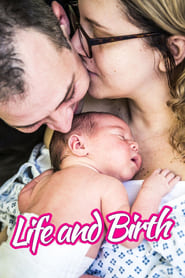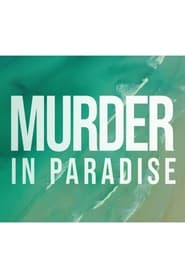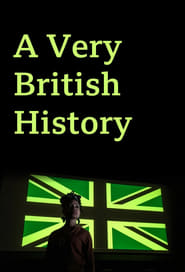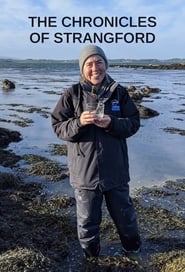Bbc One TV Series - Page 115
-
The Doctors
0000
The Doctors
0000
The Doctors is a British television series, produced by the BBC between 1969 and 1971. The series was set around a general practice in North London and leading cast members included: Justine Lord, Nigel Stock, Barry Justice, Richard Leech, Isla Blair and Lynda La Plante. Nigel Stock's character, Dr. Thomas Owens, was the lead in a later spin-off series, Owen, M.D., which aired between 1971 and 1973. Theme music to Owen, M.D. was "Sleepy Shores" by the Johnny Pearson Orchestra. -
BBC Points West
0000
BBC Points West
0000
BBC Points West is the BBC's regional news programme for the West of England, covering Bristol, the majority of Wiltshire, northern and eastern Somerset and southern Gloucestershire. Produced by BBC West, the programme is produced from the BBC Broadcasting Centre at Whiteladies Road, Bristol with reporters also based at newsrooms in Bath, Gloucester, Swindon and Taunton. The main presenters are Alex Lovell, David Garmston and Amanda Parr. -
Why...?
2022
Why...?
2022
From shark attacks to transport disasters and collapsing buildings - why do these events happen? Delve into the mysteries and science behind the stories that hit the headlines. -
Life and Birth
2020
Life and Birth
2020
Each week, the miracle of birth meets cutting edge medicine at 3 of Birmingham's busiest maternity hospitals as parents and staff welcome the arrival of Britain's next generation. -
Murder in Paradise
2023
Murder in Paradise
2023
Two of Northern Ireland’s leading journalists, Darragh MacIntyre and Allison Morris, revisit the tragic murder of 27-year-old Michaela McAreavey. -
There's No Place Like Tyrone
2019
Northern Ireland's first ever constructed reality show - set in the heart of Northern Ireland's biggest county. -
Clive Anderson Now
2001
Clive Anderson Now
2001
-
Late Kick Off
2010
Late Kick Off
2010
Late Kick Off is a BBC One regional television football programme which was launched on 18 January 2010, and is shown on Sunday nights during the second half of each season. The first two series however, were shown on a Monday night. The programme covers Football League teams on a regional or pan-regional basis in a magazine-style format, in a similar vein to ITV's Soccer Night, and complement The Football League Show on Saturday nights throughout the season. The programme is produced in three regions by local independent production companies. -
Bric-a-Brac
0000
Bric-a-Brac
0000
Bric-A-Brac is a British children's television series devised by Michael Cole and Nick Wilson, and starring well known children's television presenter Brian Cant. It was produced by the BBC and originally ran from 1 October until 5 November 1980, with another series from 18 August to 29 September 1982. It was repeated frequently until 1989. The programme was set in a fictitious junk shop, with its shopkeeper played by Cant, who would deliver a monologue to camera. Each episode centred around a particular letter of the alphabet, with different items beginning with that letter found and discussed by the shopkeeper. Cant's script made heavy use of alliteration, and made use of tongue-twisters. At the end of each episode, he would wind up and set off a traditional clockwork toy, upon which the camera would focus whilst the credits rolled. -
You Should Be So Lucky
1986
You Should Be So Lucky! was a BBC children's television programme hosted by Colin Bennett in the character of Vince Purity. It was a game show, during which contestants played on a giant snakes and ladders board. Points were earned by their team partners through talent tasks. -
A Very British History
2018
Series featuring a collection of films about Britain's cultural history in the 20th century. -
Rock 'n' Roll Hotel
2009
Rock 'n' Roll Hotel
2009
-
Rag, Tag and Bobtail
0000
Rag, Tag and Bobtail
0000
Rag, Tag and Bobtail was a BBC children's television programme that ran from 1953 to 1965 as the Thursday programme in the weekly cycle of Watch With Mother. The scripts were written by Louise Cochrane, and the series was produced by Freda Lingstrom and David Boisseau. Narration was by Charles E. Stidwell, David Enders, and James Urquhart. The three main characters were Rag, a hedgehog; Tag, a mouse; and Bobtail, a rabbit; five baby rabbits also appeared occasionally. All the characters were glove puppets, operated by Sam and Elizabeth Williams. The stories were simple and there were no catch-phrases as there were in other programmes in the cycle, but the series is still remembered with affection. Twenty-six 12-minute episodes were made, two of which were never broadcast, each shot in a single take. In 1987, a Watch With Mother video was released by the BBC. The episode of Rag, Tag and Bobtail featured a scene in which Bobtail discovered that the baby rabbits had been playing in a muddy pool and had turned black. -
Flying Soldiers
1996
Flying Soldiers
1996
Becoming an army helicopter pilot involves a rigorous 12 months of training with the Army Air Corps. BBC2 television series, follows ten soldiers from different ranks and regiments of the Army, pursuing their Wings. It focuses both on the technical skills and on the mental courage needed to transform them into front-line fighters flying killing machines. -
The Chronicles of Strangford
2022
Series charting a year on Strangford Lough, the largest sea inlet in the UK. -
Olivier Awards
1981
star 1Annual awards ceremony presented by the Society of London Theatre to recognise excellence in professional theatre in London. -
The 1952 Show
2012
The 1952 Show
2012
Strictly Come Dancing judge Len Goodman takes a look at one of the most exciting decades in our history, which began 60 years ago when Princess Elizabeth inherited the crown. -
Secret Fortune
2011
Secret Fortune
2011
Secret Fortune is a BBC National Lottery game show that is broadcast on BBC One. It ran from 12 February 2011 to 29 December 2012 and is hosted by Nick Knowles. -
John Halifax, Gentleman
0000
John Halifax, Gentleman is a British drama television series which originally aired on the BBC in five episodes in 1974. It was an adaptation of the novel John Halifax, Gentleman by Dinah Craik. It was screened on the Sunday tea time slot on BBC One, which usually showed adaptations of classic novels.







